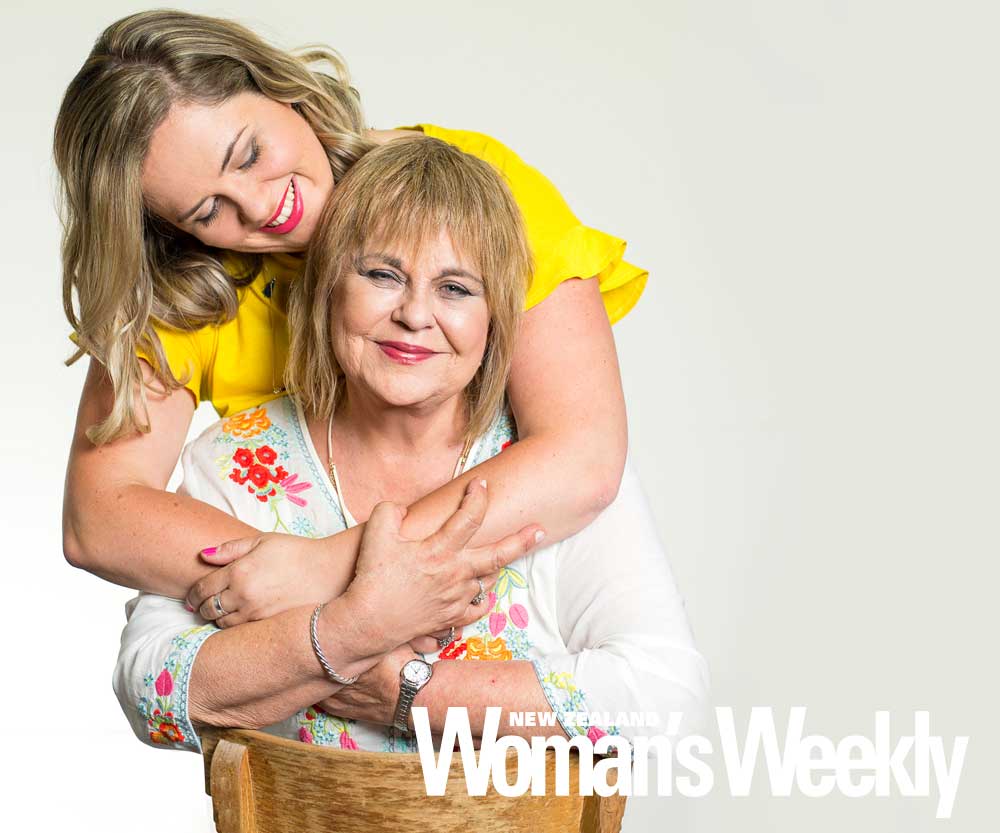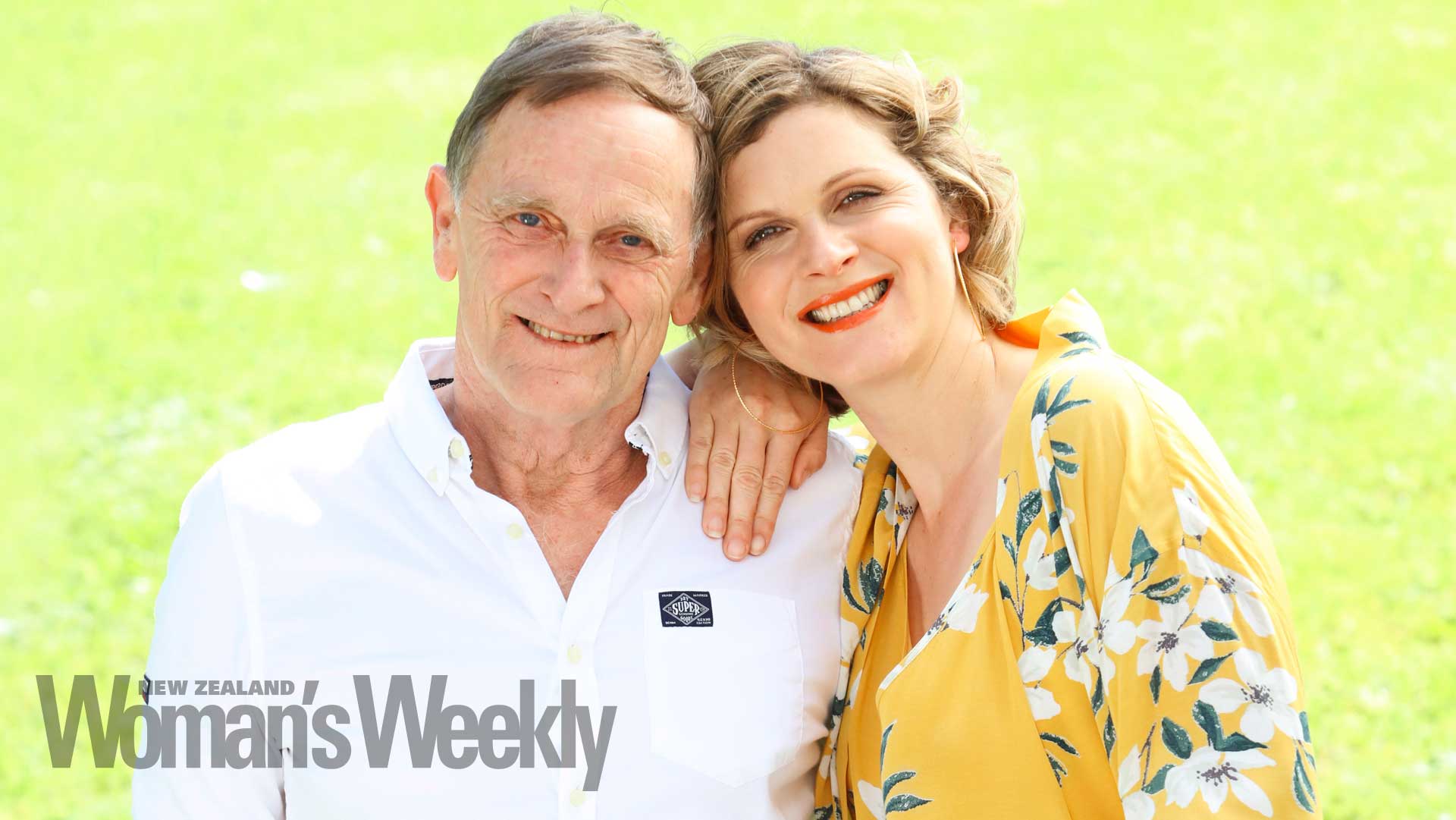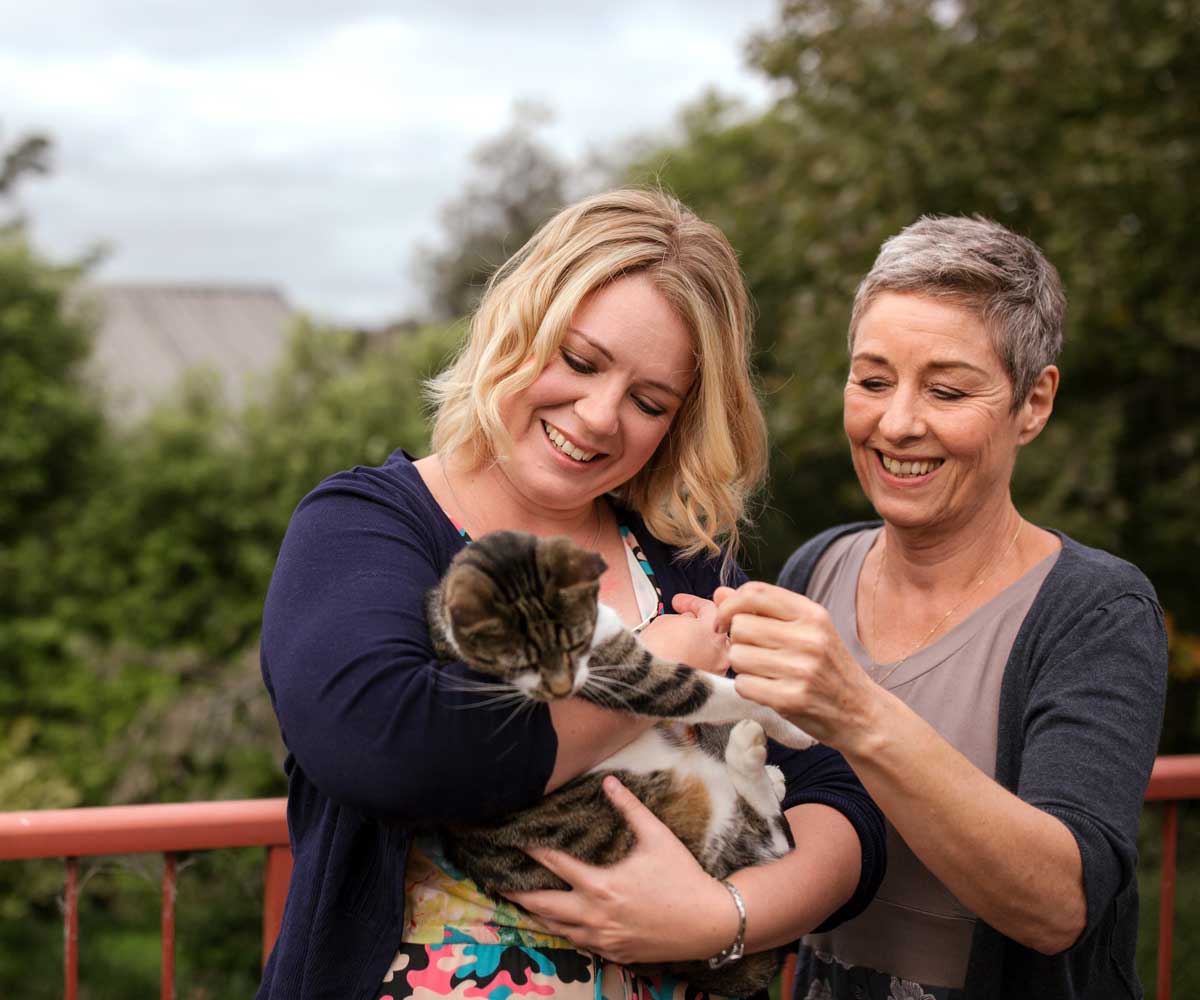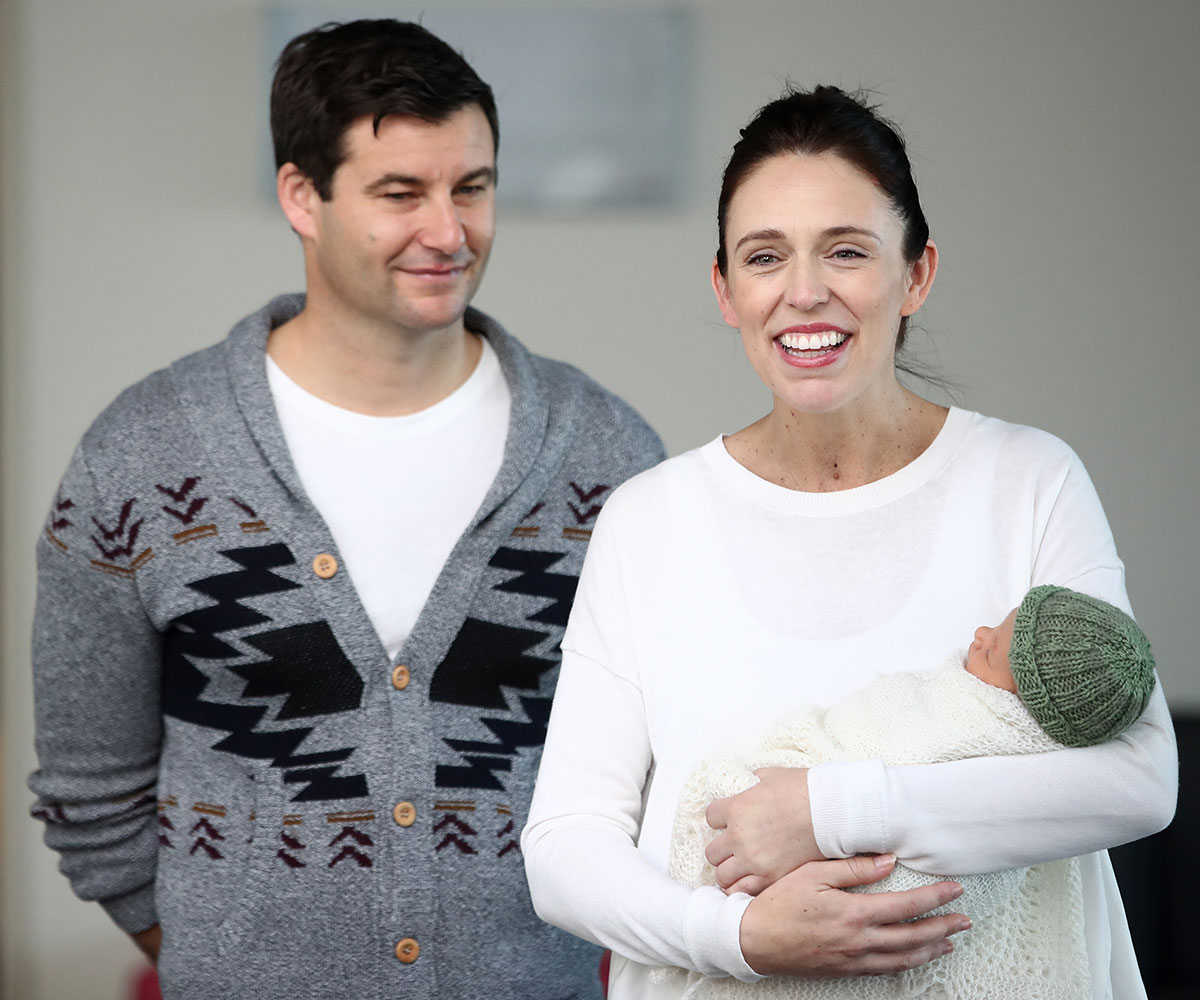Tell Ginette McDonald and her daughter Kate McGill how alike they seem and they laugh at the idea.
They don’t think so at all… even though there is a strong similarity in appearance – both share a full-cheeked sort of beauty that tends to age very well – and, after chatting for a while, the parallels in their personalities start to emerge.
Mother and daughter are quick to laughter, with a robust, earthy sense of humour. Both are strong-willed and determined, both have a certain presence. And Kate is following in Ginette’s footsteps professionally, with a burgeoning career as an actor and director.
Ginette might have preferred it if her only child had chosen a different path – maybe studied to be a lawyer, for instance.
“Acting is not an easy profession emotionally,” she explains.
“And the people who are attracted to it tend to be more than usually sensitive to the human condition. So it’s tough, both in terms of the discipline and the rather precarious income. It’s not something a parent would really want – not unless they were a crazy stage-mother type.”

This photo and one above by Emily Clark
With a writer father, David McGill, and a mother who is one of our most-loved performers, Kate seemed destined for a creative life. From a young age, she was taken to the theatre by her parents.
“And all the poets and artists and weirdos that were in our house,” she recalls.
“They were really interesting. So that must have influenced me to some degree.”
Her parents split when she was 11 and Kate thinks she forged an especially strong bond with her mother as a result. Even so, she was hesitant to admit to her mother that she had decided to go to Wellington drama school Toi Whakaari.
“I’d been there for a few weeks before Mum found out,” she says, laughing.
“She wasn’t sold on the idea to begin with but having said that she’s been supportive.”
Ginette appreciated the fact her daughter had found not only a passion at drama school, but also her tribe – a group of people she spent three years studying with who now feel like a second family.
“They’re bonded for life,” says Ginette. “And as a mother of an only child that makes me feel good because when I fall off the perch she’ll still have them.”

Ginette as Lyn of Tawa. Image: Getty Images
Looking back at her own start as an actress, Ginette had a similar experience, although she took a different route.
She was 13, growing up in Wellington and feeling very much like an outsider when a girl at school suggested going along to a Friday night drama class.
“I was disaffected and didn’t really feel like I related to anybody,” recalls Ginette.
“I went off to the drama class and there were all these other precocious kids and for the first time I felt like I was in a group. While I was there we devised a revue-type show. We thought we were brilliant and managed to persuade Downstage Theatre to put on our show – bullied them really.
“Of course I got a taste for being there so just hung out like an apprentice. That was my drama school: I built and painted sets, I did stage-managing. I’d found my people and they tolerated me and were nice.”
When Ginette left school just before turning 16, declaring she was going to be an actress, her own mother was less than encouraging.
“She said, ‘Don’t be ridiculous, you’re not attractive enough’ – that’s the way she spoke to me. But I managed to get enough work to leave home and go flatting.”
Around then her famous comedic alter ego Lyn of Tawa was born – devised originally for a late-night revue at the Downstage Theatre and soon a Kiwi icon. Despite her mother’s misgivings, Ginette was a big success.
“By the time I was 19, I thought I was a mixture of Meryl Streep and Judi Dench,” she says, drily.
“Everyone told me I was marvellous and I said, ‘I know, I’m going to England and they will be dying for me to turn up there.’ So that was a bit of a culture shock! But I was in London for five years and I did get consistent work playing small parts on the BBC.”

Photography by Emily Chalk
It was partly her gift for accents that made Ginette so employable.
“Now I’ve gone a bit deaf in one ear and I can’t even do my own accent,” she laments.
As usual she is being self-deprecating. The truth is that over the course of her long career, versatility has been Ginette’s hallmark. Not only the diverse accents she could master, but also her ability to tackle pretty much any aspect of the entertainment industry.
She has directed and produced TV series, has a string of acting credits and in the 1990s even presented a garden makeover show, Ground Force.

Ginette (right) in a theatrical adaptation of Kate De Goldi’s children’s book, The ACB with Honora Lee. Image: Getty Images
Kate, 33, has inherited this ability to adapt, although it is taking her in different directions.
She spent time in New York with a group that specialises in verbatim theatre (plays are constructed from the precise words spoken by people interviewed about a particular event or topic). She has been in the TV series Brokenwood Mysteries and the comedy Girl vs Boy, created a solo theatre show, Weave, and written a film she is planning to star in as soon as she has enough funding.
She knows from witnessing the highs and lows of her mother’s career that there is no point sitting around waiting for success to happen.
“I think I’m really lucky that I did understand it can sometimes be really great and other times not – one week the trip to the supermarket isn’t going to be as exciting as the next,” she says.
“It can be quite hard to look at it as a sustainable career. And there’s a lot of bulls!@t about where women fit in, especially if you’re outside of what is considered the norm in appearance, tone and style – which I proudly am. But I want to tell stories and make interesting, diverse art that helps grow audiences. I’d also love to win an Oscar. And to be on Shortland Street – that would be fun.”
Her partner, Rutene Spooner, is a performer too, with a particular gift for musical theatre.
“He’s pretty wonderful,” says Kate, who reckons it helps to be in the same profession and understand the highs and lows, and how sometimes sacrifices need to be made for the sake of talent.

Mother and daughter in Joan.
Ginette and Kate performed in Joan together in Wellington last year and in Auckland last month.
Joan is the story of writer and cartoonist Tom Scott’s indomitable mother. Kate played her as a hopeful, young woman and Ginette as a spikily funny old woman (warning, strong language may offend!).
What made this even more of a family affair was that Tom Scott is a friend, so they knew the real Joan when she was alive.
“She was indescribable really,” says Ginette.
“Right at the end of her life she was very obstreperous and would say anything that came into her mind. She was the kind of person who would tell you, ‘I saw you on television in that terrible dress, never wear it again, it did nothing for you.’ When she would say outrageous things, then scuttle off, I’d think, when she dies… when she dies…”
Tom had already written a play about his late father, called The Daylight Atheist, so it was a good bet he wouldn’t be able to resist following it up with another about his mother once she had gone.
“I kept saying, ‘I’m playing her,’ but I thought it would be easy,” says Ginette. “I was going to try and imitate her but it’s impossible. What I’m trying to capture is her spirit and humanity.”
Performing the play in Wellington was the first time mother and daughter had ever worked together.
“I’m on stage with Mum for a lot of the time and she gives a really beautiful performance,” says Kate. “She is very honest and connected to the audience and people love it.”
Effusiveness doesn’t come so naturally to Ginette.
“Kate is really easy to work with, that’s what I would say,” she declares, a little more gruffly, although her pride still shines through.
While mother and daughter definitely are quite similar, there are differences too. Kate seems more comfortable in her own skin and less inclined to downplay things.
She spars with Ginette – saying “tone, tone” if her humour veers towards the coarse, disagreeing with her versions of past events, giving the odd roll of her eyes – but she is also very open in her admiration of her mother’s wittiness, her gift as a raconteur, and intelligence.
“I really appreciate her. I think she’s fantastic, but I’m not her,” says Kate, firmly. “I’m not a carbon copy.”




